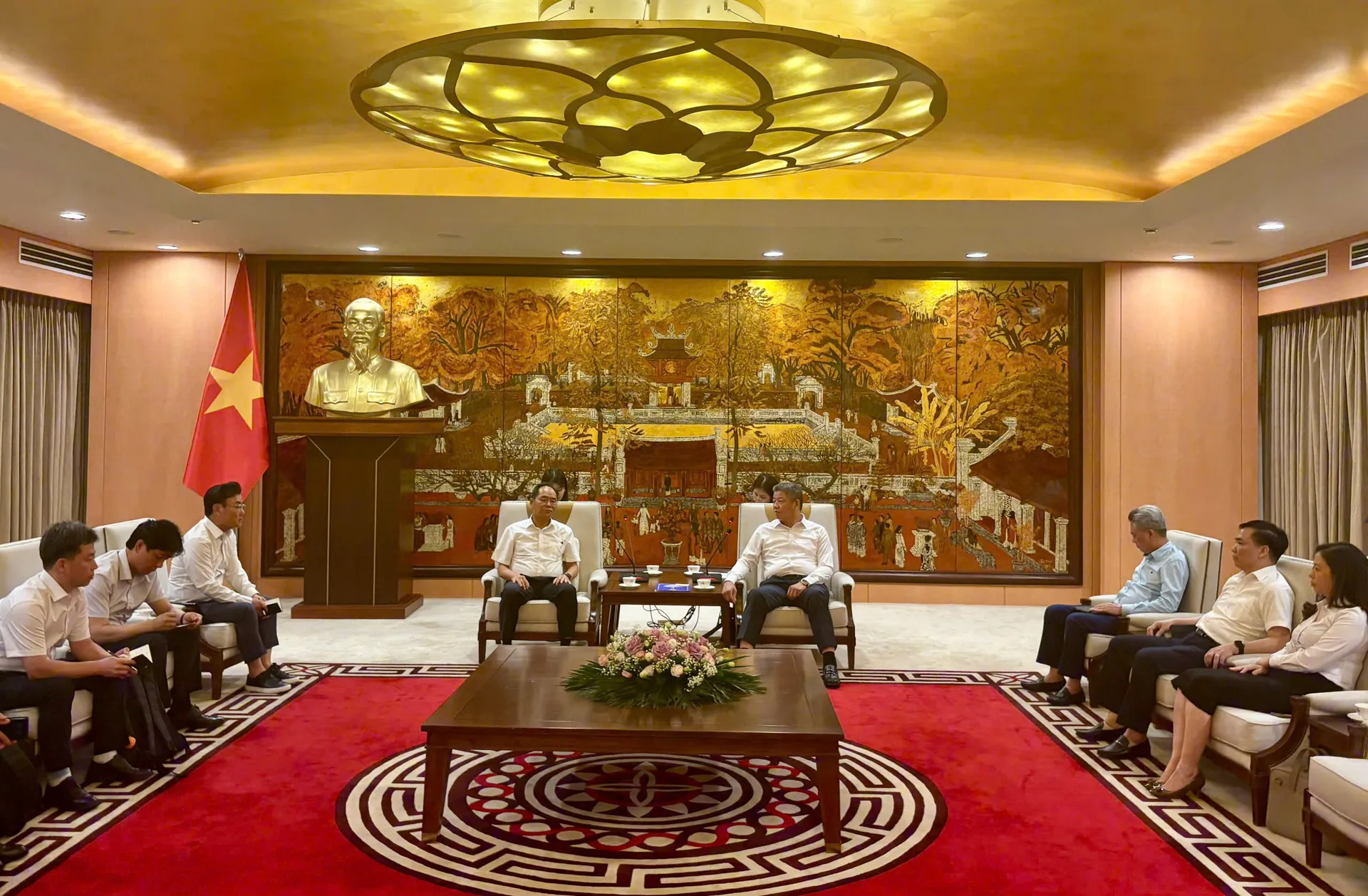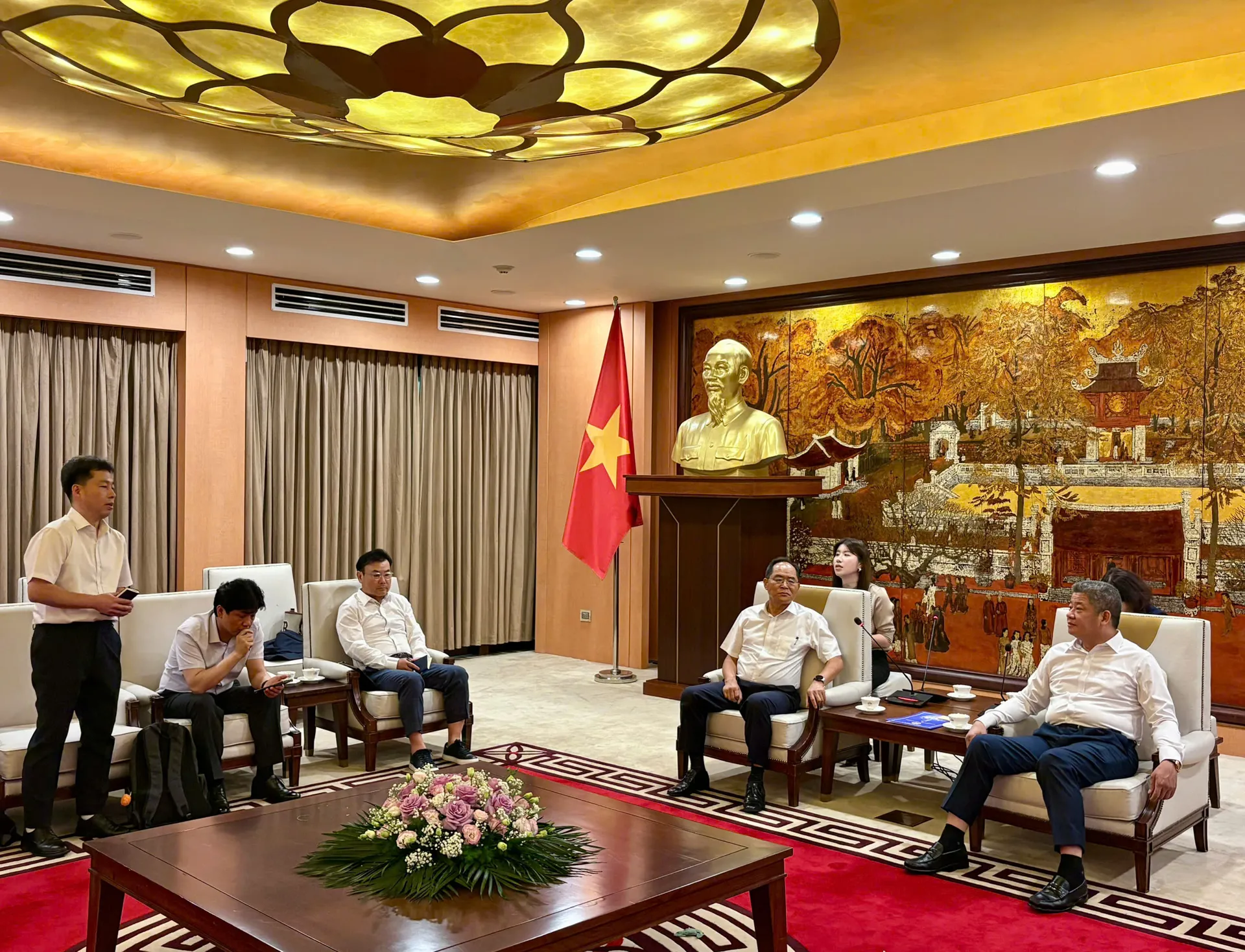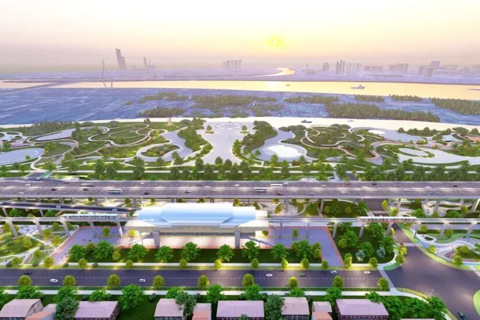Hanoi explores AI-powered traffic cooperation with South Korea
The capital looks to Korean expertise in digital surveillance and smart mobility as it accelerates efforts toward a greener, safer city.
THE HANOI TIMES — Hanoi is pushing ahead with plans to become a smarter, greener city, aligning with the Party Central Committee’s Resolution No. 57 on boosting science, technology, and innovation, said Deputy Chairman of Hanoi People's Committee Nguyen Manh Quyen.
Quyen was speaking at a working session with South Korean delegation led by Park Noh-wan, former South Korean ambassador to Vietnam, in Hanoi on June 11.

Nguyen Manh Quyen, Vice Chairman of the People’s Committee of Hanoi, receives South Korean delegation on June 11. Photo: Nathan Nguyen/The Hanoi Times
At the meeting, Park told the vice chairman that Hanoi is undergoing rapid transformation and will benefit from more advanced traffic control and urban security systems. Park introduced TOPES as a company that has partnered with the Korean police and local governments for over 40 years.
TOPES CEO Lee Kang-bon presented the firm’s offerings, including AI-powered traffic monitoring, cloud-based image analysis, and tools for identifying violations such as illegal parking and speeding. "These systems are already in use around schools and urban centers in South Korea," said Lee, noting that they can assist with both real-time enforcement and legal prosecution.
TOPES also supports emergency services through integrated alerts and predictive analytics. The company invited Hanoi to observe the technology in action during a field visit and explore potential applications.
Quyen welcomed the invitation and expressed interest in piloting the technology locally. He emphasized that Hanoi is implementing a national strategy to promote innovation and digital governance, with urban transportation at its core.
“Our goal is to transition all public buses to green energy by 2030 and expand public transit coverage,” said Quyen. "We are using technology to reduce personal vehicle use and build a more efficient, modern capital."

TOPES representative presents AI-based traffic surveillance solution.
While Hanoi has begun deploying smart parking systems and traffic cameras, Quyen acknowledged that these efforts remain fragmented. "What we need is a capable partner to help us build a standardized, citywide solution," he said. "We are open to testing these technologies in select districts to assess their effectiveness."
He also shared insights from a recent visit to Seoul’s CCTV command center, where integrated operations enable early warnings and coordinated incident responses, saying such a model is highly relevant to Hanoi's smart city vision.
The two sides agreed to continue discussions and explore research collaborations and pilot projects tailored to Hanoi’s context. Park expressed hope that advanced Korean technologies would soon contribute to Vietnam’s urban development.
Quyen reaffirmed the capital’s commitment to working with trusted global partners. “A greener, smarter, and safer Hanoi will require joint innovation and serious cooperation,” he said.












